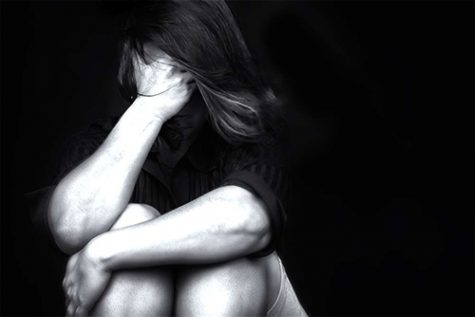Excuses! Excuses!
WARNING! This article discusses sexual assault and may not be suitable for all readers.
The world we live in today has become so very used to rape culture and the stereotypes of it. Isn’t it sickening to think about some of the excuses people use for rape, sexual battery, or sexual assault?
I’ve heard things along the lines of, “Well, it’s their own fault. They were dressed very provocatively.” I have also heard, “They drank too much and was asking for it.” The worst in my opinion is, “Boys will be boys!”
No matter what kind of excuse the offender tries to give the victim, it is never okay, ever! Do not try to say ,”I shouldn’t have drank so much..”
You are always the victim in the case, even if you were drunk and asked to have sexual contact or sexual intercourse. If the offender is sober and the victim is drunk, it is never the victims fault. The offender should have stopped.

Do not believe the lies. The world we live in today is extremely trivial about these worries. People don’t typically think about how often rape occurs.
“What is out of sight, is out of mind,” right?
According to Safe Horizon, “1 in 5 women and 1 in 71 men will be a victim of sexual assault in their lifetime according to the CDC [Centers of Disease Control]”, which is terrifying to think about. The younger you are the more likely you are to become a victim of sexual violence.
If you are between the ages of 18 and 34, you have a 54 percent chance of becoming sexually assaulted. If you are between the ages of 12 and 17, you have a 15 percent chance of becoming sexually assaulted. The ages 35 through 64 have a 28 percent chance of becoming victims of sexual assault, and 3 percent for people 65 and up. These statistics are disheartening to think about because we are more forced to think about what our world has come to.
The first step, after being sexually assaulted is knowing that it is not your fault. You are never alone. You never deserve to be treated with such disrespect. You do have rights, and there is always someone for you to talk to.
Next step, you need to talk to someone so that you can have full disclosure with someone. It is proven that talking things out with someone supportive of you helps with the healing process.
I talked with one of my friends, who have disclosed to me their past experiences. She shared, “I felt like it was my fault for the longest time. I was told that it was my fault. I will admit that I was drunk, and I had a short, tight dress on. When he started doing stuff, I froze up. Fear took over me, and it was all-consuming. It engulfed me like an ocean wave pulling me down under and away with the current. I wish I could’ve fought back, but it was like I was in a hole upside down digging myself deeper and deeper into the hole. I didn’t want to tell anyone because I always thought it was my fault. I was always taught that it is the woman’s fault.”
Rape culture has made people become blind.
It should be obvious that it is not the victims fault. Although, we have all been brainwashed into believing that rape is the victims fault and that we, “asked for it”. These misconceptions that we have been taught not only is absolutely incorrect, but also extremely repulsive to think about the mentality that most people have about rape in today’s world.
In conclusion, I believe you are the victim, and you should not be blamed for other people’s repulsive actions.
If you have been raped, sexually assaulted, or experienced sexual battery, please call the following number, 800-656-4673. You can be connected with the right people to help you find the resources you need by calling this number.
If you are worried about confidentiality, worry no more. By law, they must keep the information discussed confidential unless you are vulnerable to more danger.
Remember, it is never your fault.

Sabrina Crain is 18 years old and was born and raised in Oxford, Miss. She is a freshman at Delta State University and pursuing an English degree with...


